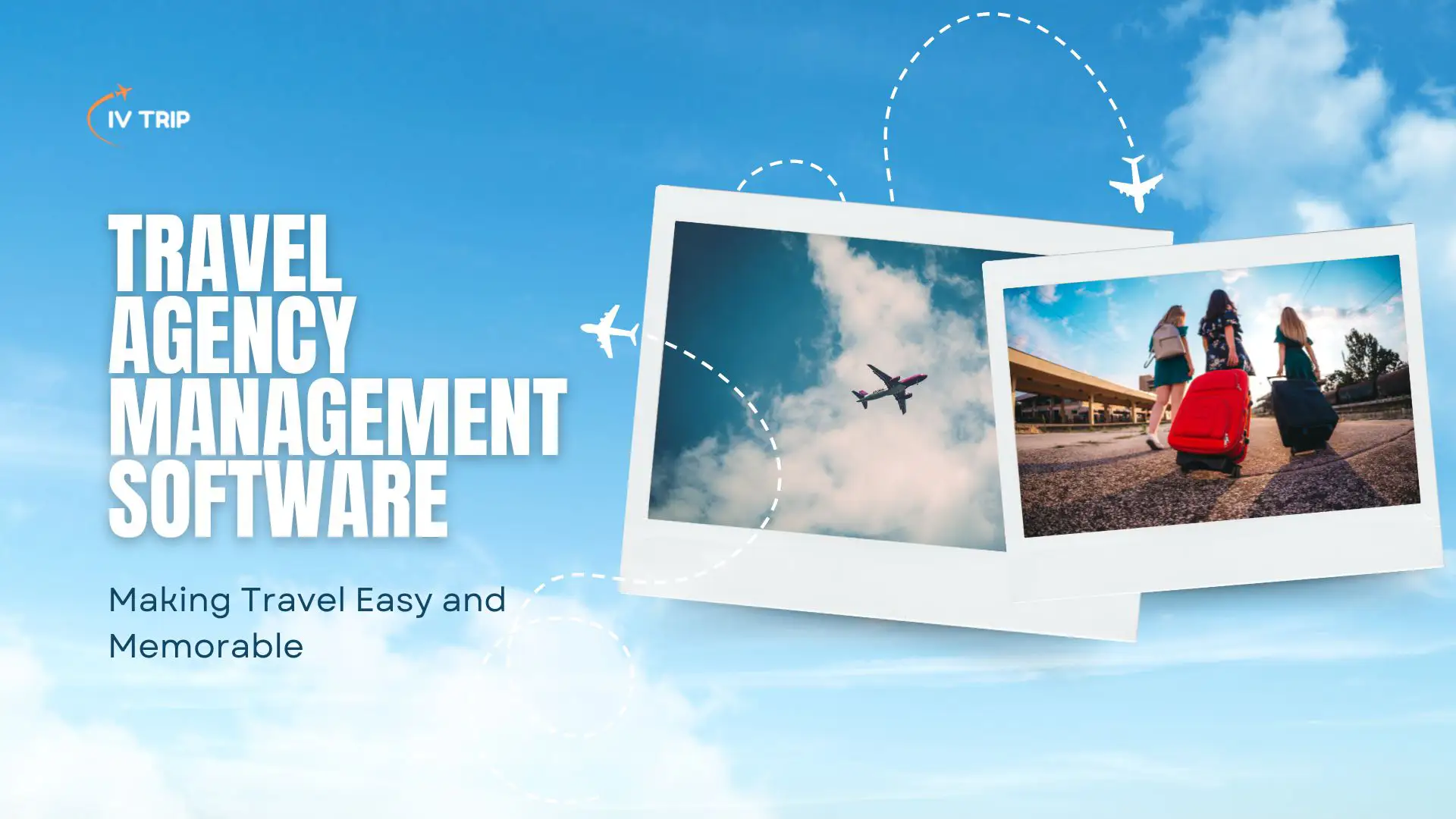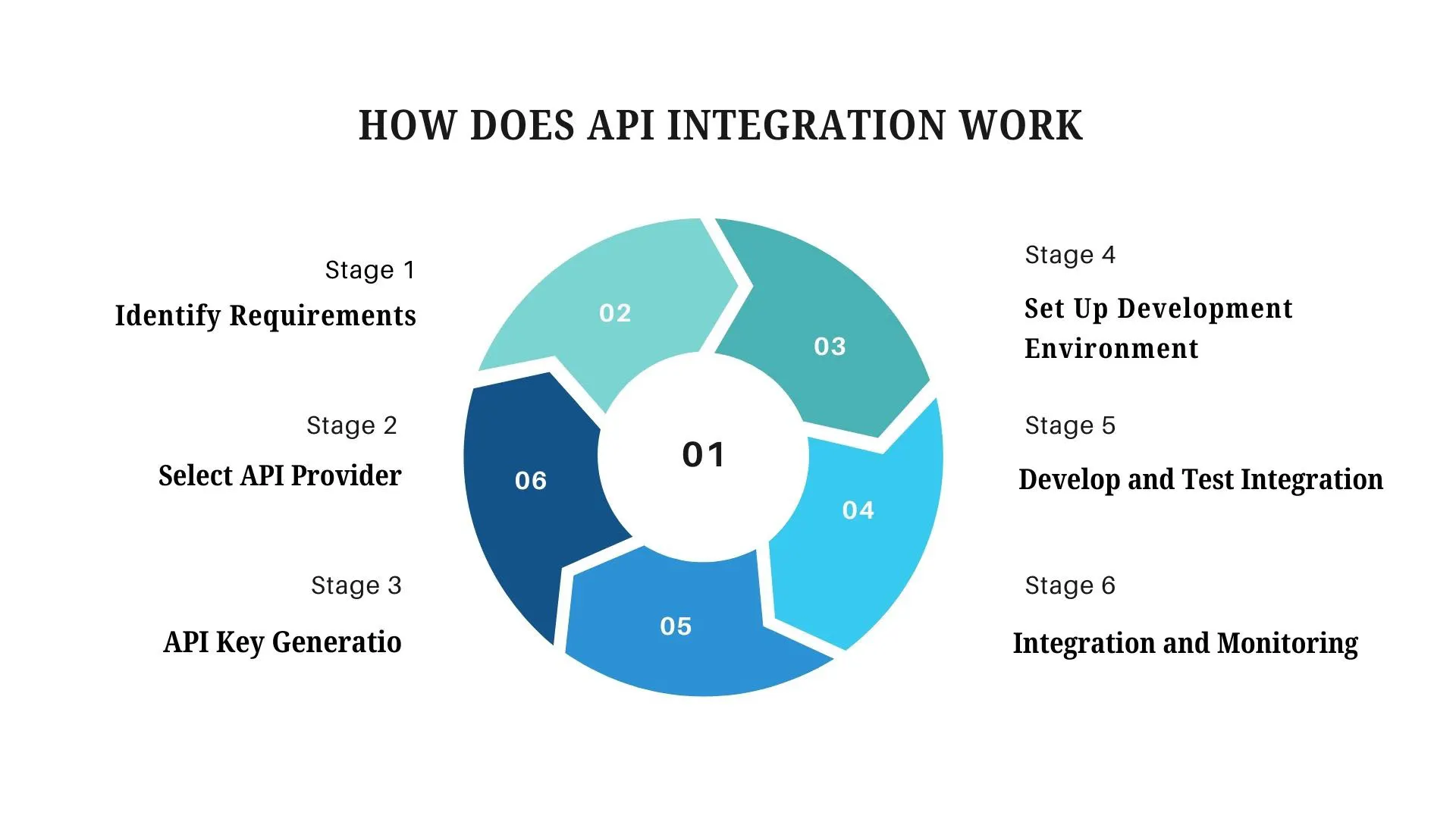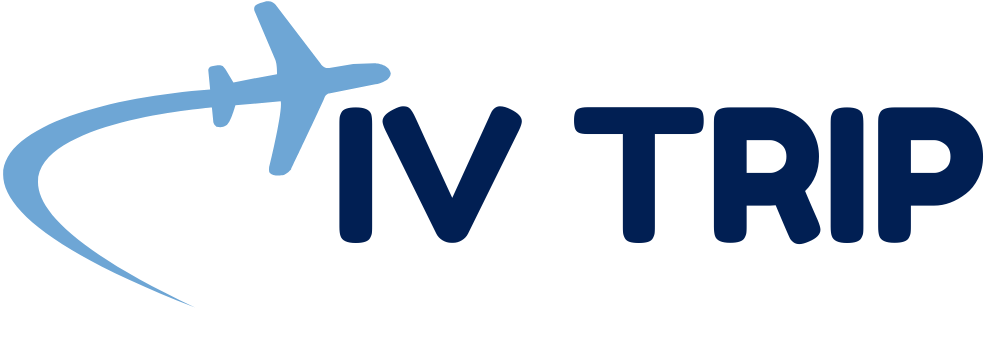Travel Technology Partner: Empowering Modern Travel Agencies

In today’s fast-paced travel industry, partnering with the right technology provider is essential for any agency looking to thrive. Travel technology (often called “traveltech”) refers to the application of IT and digital solutions in travel, tourism, and hospitality. A travel technology partner is a specialized company that delivers tailored software and services—such as online booking engines, inventory management, and API integrations—to help travel businesses automate operations and improve customer experiences.
By working with a travel tech partner, agencies can offload complex technical tasks, integrate with global suppliers, and focus on delivering great trips to their clients. As a result, modern travel agencies can operate 24/7, reach new markets, and scale up to become full-fledged OTAs (Online Travel Agencies) without reinventing the wheel.
Technology-driven agencies today are no longer tied to manual processes or legacy systems. Instead, they use travel agency software and integrated platforms to manage flights, hotels, tours, accounting, and customer relationships—all in one place. For example, IvTrip by Implevista is a comprehensive travel agency software used in Bangladesh and beyond.
It offers real-time booking access, dynamic packaging, a built-in CRM, and more, so agencies can focus on service while the software handles the details. This article explores how to choose a travel technology partner, the key services they offer (including API integration and OTA solutions), and how IvTrip stands out as a travel tech partner to help agencies grow. Throughout, we include insights and best practices for travel businesses seeking their ideal tech partnership.

Understanding Travel Technology Partners
A travel technology partner is a company that provides end-to-end digital solutions for travel businesses, including software, platforms, and integrations tailored to the industry. These partners go beyond generic IT vendors: they have deep domain expertise in tourism, airlines, hotels, and online bookings.
In practice, a tech partner will offer or develop a travel agency management system—a centralized travel agency software—that handles inventory, reservations, supplier connections, accounting, marketing, and customer data all in one platform.
For example, travel technology providers typically integrate multiple content sources such as GDSs (Global Distribution Systems), local airline APIs, and tour operator feeds into a single booking engine. They also offer mobile apps, reporting dashboards, and 24/7 support.
As one industry leader notes, travel tech partners “develop the newest technologies to help travel agencies, tour operators, hotels, airlines operate and enhance travel experiences anytime, anywhere”. Their role is to bring modern IT practices—cloud hosting, API-driven architectures, and data analytics—into the travel ecosystem, making processes efficient and scalable.
Key characteristics of top travel technology partners include:
- Domain Expertise: They focus on travel industry needs (OTA, DMC, Tour Operator, etc.) rather than general software development.
- API Integration Capabilities: They connect to major suppliers (Sabre, Amadeus, Booking.com, etc.) so agencies can access global inventory in real time.
- Comprehensive Solutions: They offer features like mobile booking, dynamic package creation, CRM, and back-office accounting within one platform.
- Proven Track Record: They have experience with similar businesses (case studies and clients) and a stable, international presence.
In essence, a travel technology partner helps a travel agency “fly higher and serve better” by infusing innovation and automation into every aspect of the business. Instead of assembling pieces on their own, agencies get a turnkey solution and an ongoing partnership for growth and support.
Why Travel Agencies Need a Technology Partner
The travel industry has undergone a digital transformation in recent years, accelerated by changing consumer habits and global events. A majority of travelers now plan and book trips online (over 70% according to industry data), so agencies must have a robust online presence.
This means more than just a website—it requires integrated systems to handle real-time searches, dynamic pricing, mobile bookings, and efficient back-office workflows. For many agencies, the gap between their business needs and available resources can be bridged by a specialized tech partner.
Several key factors make a travel tech partnership almost mandatory today:
- Automating Repetitive Tasks: Travel agencies handle complex itineraries, invoicing, and customer communications. By automating functions like booking confirmations, invoicing, and client communications, travel software can reduce errors and save operational costs. For example, accounting and CRM systems built into travel tech can track payments, commissions, and follow-ups automatically.
- Real-Time Inventory and Pricing: Customers expect up-to-date availability. A good tech platform integrates with airline and hotel systems, ensuring agents can only book what’s truly available at the current price. This prevents double-bookings and lost sales. IvTrip, for example, provides instant flight and hotel updates via GDS and API integrations.
- Scalability and Growth: Agencies aiming to become OTAs or expand internationally need tech that can handle more transactions, multiple branches, and even self-service portals. Travel tech partners offer multi-user systems and cloud infrastructure so businesses can scale up without buying new servers or rebuilding software from scratch.
- Competitive Edge: According to Traveltek, outdated or siloed systems put “considerable pressure on top-line sales and business costs”. In contrast, a modern tech solution can streamline marketing campaigns, support multi-currency sales, and provide 24/7 online booking. Agencies with the right technology can operate continuously and reach global customers with localized offers.
- Data-driven Decisions: Embedded analytics let agencies track sales, customer behavior, and revenue trends. With built-in reports and forecasting, managers can optimize offerings and marketing based on real numbers. For example, IvTrip’s analytics show which destinations or packages perform best, enabling a smarter strategy.
- Customer Experience: Travelers demand a seamless experience—from quick online booking to personalized recommendations. Tech partners provide CRM tools and marketing modules so agents can send timely emails, customize packages, and engage clients on social media. This not only improves satisfaction but also builds loyalty and referrals.
In short, without a technology partner, an agency risks being left behind as the market grows more digital. By collaborating with a specialist provider, even small and medium agencies can access enterprise-level tools (like a comprehensive OTA system) at a fraction of the cost and complexity of building it in-house.

Core Services of a Travel Technology Partner
A top travel technology partner offers a suite of solutions tailored to the diverse needs of travel agencies, tour operators, and OTAs. Common services include:
- Travel Agency Management Software: The central platform that automates bookings, inventory, customer records, invoicing, and reporting. For instance, IvTrip’s system includes flight, hotel, and tour booking modules, plus accounting and CRM features, all synchronized in real time.
- Online Booking Engines and OTA Solutions: White-label websites or booking portals that let agencies sell directly to customers. These OTA solutions typically feature multi-device support (web and mobile) and integrate with the main software for live data. IvTrip emphasizes its OTA platform which handles web/mobile bookings and instant confirmations.
- API Integration Services: Specialized connectors to global systems. This includes integrating GDSs like Sabre, Amadeus, Travelport or local flight/hotel APIs so agencies can search billions of options instantly. Partners also provide APIs for car rentals, buses, and even insurance. For example, IvTrip integrates with Sabre, Amadeus, and Mystifly to broaden its content.
- Multi-provider Aggregation: A provider can consolidate multiple suppliers behind one interface. This means an agency only learns one system, while enjoying content from Expedia, Booking.com, GDS, and others. Such “all-in-one” aggregation expands market access without separate contracts.
- Dynamic Packaging & Trip Builders: Tools that allow custom package creation on the fly. Agents (or even customers) can combine flights, hotels, transfers, and tours into one bundle, often with dynamic pricing. Travelopro notes that a robust “dynamic packaging system” gives agencies a competitive edge.
- Mobile Applications: Many tech partners offer mobile apps that sync with the desktop/web system. This enables agents to manage bookings and itineraries on the go and allows end customers to search and book via smartphone. IvTrip, for example, provides a mobile app that stays synced with the web platform.
- Marketing and CRM Tools: To engage customers, partners include CRM modules to track traveler profiles and preferences. They may also offer email campaign management, social media integration, and referral systems to help agencies grow their brand.
- Analytics and Reporting: Built-in dashboards and reports give agencies visibility into sales trends, source markets, top sellers, and financials. This data is critical for strategic planning. IvTrip offers “advanced analytics” so agencies can monitor revenue, bookings, and customer data.
- 24/7 Support and Training: Ongoing technical support, updates, and training are crucial. Travel tech providers typically include implementation assistance, user training sessions, and dedicated support staff so clients can make the most of the system.
These services help agencies do everything from A to Z within a single ecosystem: automate reservations, manage trip details, track payments, and even upsell add-ons. As Travelopro emphasizes, travel tech solutions enable agencies to “operate and enhance travel experiences anytime, anywhere”.
By consolidating multiple functions into one platform, a travel technology partner essentially serves as the agency’s entire tech department.

Travel Agency Software: The Backbone of Modern Agencies
At the heart of any travel technology partnership is the travel agency software itself. This is the digital engine that powers bookings and day-to-day operations. A good travel agency software includes:
- Real-Time Flight Booking: Instant access to flights across multiple airlines. For example, IvTrip connects to GDSs to show live flight schedules and prices. Agents can search flights with filters (times, stops, price) and issue tickets without manual intervention.
- Hotel Booking Engine: Live hotel inventory and rates. With integrated APIs, agents can see room availability and secure instant confirmations through one interface.
- Tour and Package Management: Tools to create and manage tour packages. Agencies can dynamically price and advertise packages for tours, cruises, or vacation bundles.
- Customer Relationship Management (CRM): A database to track every traveler’s preferences, past trips, and contact info. A robust CRM (as in IvTrip) automates follow-ups, sends personalized offers, and stores customer history for repeat business.
- Accounting and Invoicing: Integrated finance features for billing, commissions, and expense tracking. Instead of separate accounting software, many travel platforms include invoicing and commission calculations so agencies stay on top of revenue.
- Multi-Channel Booking: Support for B2B (agent portals), B2C (agency website/OTA), and even B2B2B. Leading travel software allows agencies to sell to other agents, corporate clients, or directly to consumers with different pricing tiers.
- User-Friendly Interface: A clean UI is crucial for adoption. Traveltek notes the importance of simple front-ends even if the backend is complex. For agents, that means easy screens for booking entries, calendar views of trips, and drag-drop itinerary tools.
- Security and Compliance: Secure cloud hosting and data encryption protect customer information. According to IvTrip documentation, advanced security measures (cloud encryption) safeguard agency data.
Travel agency software is important because it centralizes operations. Without it, agencies juggle phone calls, spreadsheets, and separate systems for each supplier. With integrated software, everything happens in one dashboard. This reduces human error and saves time, allowing staff to focus on customer service instead of data entry.
In fact, when asked about the best travel agency software in Bangladesh, industry leaders highlight IvTrip’s all-in-one booking and management features as a key differentiator.

API Integration & OTA Solutions: Connecting to the World
Modern travel operations rely heavily on API Integration. An API (Application Programming Interface) is how software systems communicate. In travel, API integrations connect a booking platform to airline reservation systems, hotel databases, and more.
This means agencies get real-time access to supplier content. For instance, IvTrip’s platform integrates major providers like Sabre, Amadeus, Travelport, and local carrier APIs, while also connecting to popular OTAs (online travel agencies) and bedbanks.
The benefits of API integration are huge:
- Accurate Inventory and Pricing: APIs synchronize availability and rates on the fly. When a customer requests a flight or hotel, the system queries suppliers via API and returns up-to-the-second options. This level of synchronization (often called seamless data flow) eliminates discrepancies and overbookings.
- Broader Market Access: Through APIs, agencies instantly tap into global networks. For example, integrating an OTA API like Expedia or Booking.com gives access to thousands of hotels worldwide. As Travelopro explains, OTAs “have access to a huge database of hotels, airlines, and other services through APIs”, enabling smaller agencies to offer the same inventory as big players.
- Operational Efficiency: Automating data exchange means staff spend less time on manual uploads or reconciliations. Rates, availability, and bookings propagate automatically between systems. This boosts efficiency by freeing up agents from repetitive tasks.
- Dynamic Packaging and Real-time Personalization: APIs facilitate combining multiple components into one package in real time. For instance, an agent can bundle a flight, hotel, and car rental through the system in one transaction. Travelopro notes that dynamic packaging allows creation of customized deals on the fly, which is a key upselling feature.
- Scalability: As agencies grow, they can easily plug in additional supplier APIs or launch new channels without overhauling their system. A well-designed travel platform supports multiple suppliers and currencies from the start.
An OTA solution is essentially a front-end portal (or website) enabled by these integrations. It looks like a consumer-facing travel site but is backed by the same inventory and booking engine. For example, IvTrip’s OTA module allows agencies to show real-time flight, hotel, and package availability on their website. It handles secure payments and instant confirmations, mirroring the features of big OTAs.
By offering an OTA solution, agencies can capture direct bookings and market themselves online. Travelopro states that an experienced API integration company equips OTAs with the tools to “seamlessly connect with various third-party service providers”, expanding product offerings effortlessly.
Overall, API integration is the lifeblood of travel tech partnerships. It’s what transforms isolated systems into a global marketplace. Agencies seeking to automate and expand their reach should insist that their technology partner provides robust API connectivity and ready-made OTA solutions.
In fact, having a single universal API connection can be a competitive edge—according to Travelopro, the right travel tech partner “helps you get the competitive edge with unique solutions” by enabling such broad integrations.
Choosing the Right Travel Agency Software API Integration Partner
With so many travel tech vendors in the market, choosing the right partner can be challenging. A systematic approach helps narrow down the options. Consider these key criteria (adapted from industry best practices):
- Travel Domain Expertise: Look for a vendor focused primarily on travel. Such specialists will ask the right questions (about your OTA/B2B model, your current inventory sources, etc.) and understand your workflows. A niche travel tech firm may cost a bit more upfront than a generalist, but the investment pays off in faster delivery and fewer misunderstandings.
- Range of Services: Ensure the company offers more than just off-the-shelf software. Ideally, they should provide API integration services, custom development, hosting, and ongoing support. A broad service offering means they can scale with you—adding new modules or integrations as your business grows. If you need a one-off custom feature later, they won’t say “no” or make you find a third party.
- Proven Track Record: How long has the vendor been in travel technology? A firm with a decade or more in the industry shows stability. Check for case studies or client references. If they have successfully implemented solutions for agencies of varying sizes, it indicates flexibility. Also look for companies with international experience; global presence suggests familiarity with different markets (different languages, currencies, and payment methods).
- Client Portfolio: A solid partner should have recognizable names or a diverse range of clients in its portfolio. For example, IvTrip proudly notes multiple travel companies using their software worldwide. Read testimonials: if big agencies or well-known travel brands vouch for them, that’s a good sign of credibility.
- Technology & Security: The partner must use up-to-date technology stacks (cloud, modern databases, responsive UI) and follow security best practices. Inquire about data protection measures: for instance, IvTrip uses encrypted cloud storage to safeguard business and customer data. Ensure any platform you consider is PCI-compliant for payments if you’re handling online transactions.
- Customizability: Can the platform be tailored? Vendors should allow branding changes, custom fields, and feature toggles to fit your exact business model. Off-the-shelf isn’t always enough; you’ll benefit if the partner can customize APIs or interfaces when needed.
- Communication and Support: A technology partner should be a true collaborator. They need to offer clear project communication and post-launch support. Look for companies that promise training, documentation, and a dedicated support team. As one expert suggests, ongoing communication is key—your partner should feel like an extension of your team.
- Pricing and Value: Cost is important, but don’t make it the sole deciding factor. Extremely cheap solutions often skimp on quality or support, while premium prices may include unnecessary features. Aim for a partner that offers transparent pricing and aligns on value—for example, focusing on ROI and time saved, not just a license fee.
By using this checklist, agencies can compare travel tech vendors side-by-side. As GP Solutions (a travel tech provider) summarizes: evaluate expertise, service range, market presence, client base, and pricing to find the right match. The ultimate goal is to pick a partner that not only supplies software, but contributes strategic value and innovation to your business.

Best Travel Agency Software API Integration Partner: Key Selection Criteria
When specifically seeking an API integration partner for your travel agency software, emphasize the following:
- Open and Scalable Architecture: The software should be built to easily integrate new APIs. Ask if the platform uses a modular architecture or microservices that let you plug in additional supplier APIs without major rework.
- Pre-built Connectors: Some vendors have ready-made connectors for popular APIs. This reduces setup time. Verify which specific APIs they already support.
- Load Handling and Performance: API calls can spike with demand. Ensure the system can handle high volumes without slowing down or timing out. Partners should have cloud infrastructure that auto-scales as needed.
- API Management and Documentation: The partner should document all their public APIs (if any) and integrations, and may provide you with API keys and sandbox environments to test before going live.
- Security & Compliance: API security is critical. The partner should use tokenization, SSL, and strict access controls. If dealing with payments, PCI compliance is a must.
- Integration Support: A good partner will have experienced integration specialists who can guide you through connecting new suppliers or troubleshooting data issues. Look for mention of post-deployment support for API changes (since suppliers update their own APIs periodically).
- Future Roadmap: Ask about their roadmap for new integrations. A forward-looking partner will be proactive about adding new suppliers or tech trends (like adding AI-driven recommendations or new data sources).
By focusing on these API-related factors, you ensure that your travel agency software remains robust and connected as the market evolves. In short, the “best” API integration partner is one who not only provides the technology but also the knowledge and flexibility to harness it effectively for your agency.
Why IvTrip is the Best Travel Agency Software API Integration Partner
As an example of a comprehensive travel tech partner, IvTrip by Implevista meets many of the criteria above. IvTrip is an all-in-one travel agency platform built with deep industry expertise. It offers:
- Complete Travel Services: IvTrip integrates flight, hotel, tour, car rental, and holiday package bookings in a single system. Agents can sell across all segments without juggling multiple tools.
- Robust API Connectivity: It has pre-built integrations with major systems (Sabre, Amadeus, Travelport, Mystifly, local airline APIs) for real-time inventory. It also supports integration with B2B and B2C channels, enabling both agent and direct bookings. In fact, the IvTrip platform is described as empowering a travel agency with a real-time flight booking system and giving it “a wide network of airlines” through its OTA capabilities.
- User-Friendly Interface: The software is designed to be intuitive for agents. The home page, as shown above, provides quick access to all booking modules. Traveltek highlights the importance of simplicity for travel users, and IvTrip’s UI reflects that goal.
- Mobile Support: IvTrip includes a mobile app fully synced with the web platform. Agents can manage bookings and itineraries from any device, giving agencies 24/7 connectivity. One IvTrip client noted the mobile app is “a game-changer” for managing on the go.
- Security and Reliability: Built on cloud infrastructure, IvTrip uses encrypted data storage to protect sensitive information. The 24/7 support team ensures that travel agencies never get stuck—help is always available, as one might expect from a top vendor.
- Local Customization: Tailored for Bangladeshi agencies, IvTrip supports local currency (BDT) and regional tax rules. Yet it is scalable to global use. This blend of global tech and local insight is key for many agencies’ success.
- Proven Impact: Testimonials from agencies using IvTrip highlight dramatic efficiency gains. Clients mention that IvTrip “modernized our processes” and “completely transformed how we manage our travel agency”. These success stories underscore the value of a travel technology partner that understands an agency’s needs.
In summary, IvTrip embodies the attributes of a best-in-class travel technology partner. It combines a comprehensive travel agency software suite with advanced API integrations and ongoing support. By partnering with IvTrip, agencies get all the tools they need—booking engines, CRM, payment processing, and more—in one place.
This level of integration and support makes IvTrip a strong candidate for “best travel agency software API integration partner,” especially for businesses in the region.
Future Trends: Why Travel Tech Partnerships Are More Important Than Ever
The travel industry is evolving rapidly. Analysts predict that travel technology will keep growing: one report notes the global travel tech market (approximately $8.6 billion in 2020) could grow by ~45% by 2026. To stay competitive, agencies must embrace new tech trends through their partners:
- AI and Automation: Artificial intelligence (AI) is already being used in travel for chatbots, customer recommendations, and fraud detection. Tech partners are incorporating AI/ML to handle tasks like dynamic pricing and itinerary planning. Traveltek expects even more automation (RPA) to enter travel operations.
- API Economy Growth: APIs remain central. More suppliers will open up, expanding opportunities for innovative packages. The partner’s ability to quickly integrate new APIs will be crucial.
- Mobile and Omni-channel Experience: Mobile-first engagement and omnichannel planning (customers switching between web, app, and call center) will become standard. Partners who offer seamless switching between devices, like IvTrip’s sync between app and web, will be ahead.
- Personalization: Data analytics will power personalized offers. Partners that leverage user data (via CRM and AI) to suggest tailored trips will help agencies increase conversion and loyalty.
- Sustainability and Niche Market Support: As travelers seek eco-friendly options and specialty tours, software that can filter by green certifications or manage experience-based bookings will be valuable. Tech partners may develop modules for carbon tracking or curated marketplaces.
- Blockchain and Secure Payments: The rise of new payment methods may be adopted. Forward-thinking tech partners will explore these to offer competitive payment options.
- Global Resilience: Recent global events (pandemics, climate events) have taught agencies to be adaptable. Tech partners will continue to provide tools for quick rebooking, inventory freezes, and customer notifications to handle disruptions.
Overall, travel agencies need partners who not only solve current problems but also drive innovation. The right partner will continually update their platform to meet emerging trends and regulatory changes (visa rules, tax laws, etc.), ensuring the agency never loses its technological edge.
As one industry report warns, agencies that fail to digitize may miss record demand and bookability opportunities. Hence, choosing a visionary travel technology partner is not just a technical decision—it’s a strategic one for future growth.
A strong technology partnership can be the difference between a struggling agency and a thriving one. By working with a dedicated travel tech partner, agencies gain access to cutting-edge travel agency software, seamless API integrations, and powerful OTA solutions. These capabilities help automate operations, reach customers worldwide, and adapt to market changes—all while freeing agency staff to focus on customer service and business strategy.
IvTrip by Implevista exemplifies a complete travel technology partnership. It offers robust features like real-time flight and hotel booking, CRM, accounting, and OTA integration, backed by local support and global expertise. Agencies using IvTrip report smoother operations and happier customers.
If you’re a travel agency looking to modernize, partnering with IvTrip could accelerate your growth. Contact us for a demo of our travel technology solutions and see how we can tailor our tools to your needs. Explore our services or subscribe to our blog for the latest tips in travel technology. Together, we can take your travel business to new heights.
Ready to transform your travel agency? Contact IvTrip today or visit our Contact page to schedule a demo.

Frequently Asked Questions
Q1: What is a travel technology partner?
A travel technology partner is a specialized provider of software and tech services for the travel industry. They supply tools like booking engines, API integrations, and CRM systems that help agencies automate operations, connect to suppliers, and enhance the customer experience.
Q2: Why do travel agencies need a travel technology partner?
Travel agencies need tech partners to automate repetitive tasks (bookings, invoicing), maintain real-time inventory, and scale their business online. Modern travelers expect 24/7 availability and personalization, which is enabled by integrated software and APIs provided by a tech partner.
Q3: What services do travel technology partners offer?
They offer comprehensive travel agency software and solutions, including flight/hotel booking modules, tour/package management, OTA portals, API integrations to global suppliers, CRM and accounting tools, mobile apps, and analytics. All these work together to streamline agency operations.
Q4: What is travel agency software and why is it important?
Travel agency software is a digital platform that automates core operations (bookings, inventory, customer records, accounting). It is important because it reduces manual work and errors, centralizes data, and lets agencies focus on service instead of paperwork.
Q5: How does API integration benefit travel agencies?
API integration connects an agency’s software to external suppliers (airlines, hotels, etc.) in real time. This ensures up-to-date availability and pricing, automates bookings, and widens market access by bringing in global inventory. It saves time and reduces mistakes by syncing data across systems.
Q6: What is an OTA solution and how does it integrate with travel technology?
An OTA (Online Travel Agency) solution is a white-label booking platform that enables agencies to sell travel products online. It integrates with the main travel software via APIs to ensure real-time synchronization of bookings and inventory. Agencies use OTA solutions to capture online sales while relying on their partner’s travel tech to manage the backend.
Q7: How do I choose the best travel agency software API integration partner?
Look for a travel-focused vendor with deep industry knowledge. Ensure they have a wide range of services (like custom development and API connectors) and a proven client track record. Check for strong support, flexible pricing, and the ability to customize features as your agency grows.
Q8: What is dynamic packaging in travel technology?
Dynamic packaging is a system feature that allows agents or customers to create custom trip bundles (flights, hotels, tours, etc.) on the fly. It uses real-time APIs to calculate combined pricing, enabling agencies to offer personalized, multi-component travel deals. This leads to higher revenue and more competitive product offerings.
Q9: What should I consider when integrating APIs into my travel software?
Ensure the platform supports secure, scalable API connections. The partner should already integrate major suppliers. Verify they handle data refreshes and error-handling properly. Also, confirm that API integrations are documented and that the vendor provides ongoing support for API updates and new connections.
Q10: How can IvTrip as a technology partner benefit my travel agency?
IvTrip provides a one-stop travel software solution tailored for agencies. It offers real-time booking for flights and hotels, a powerful CRM, financial tools, and seamless OTA integration. It supports both B2B and B2C sales channels and includes 24/7 customer support. By automating workflows and centralizing operations, IvTrip helps agencies save time, reduce errors, and scale their business efficiently.

